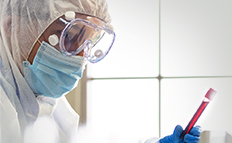7 Nutrition Strategies to recover from tendinopathy!
By Ms. Mihira Khopkar | 25-Jul-2023
Whether you are an athlete or a recreational fitness enthusiast, mechanical overuse, among many other factors, can cause chronic and persistent tendon pain, especially if you are involved in high-impact and repetitive sports. This pain can be further aggravated if you suffer from a parallel metabolic condition like obesity and diabetes. Such chronic pain is sure to affect your daily quality of life, in addition to impacting sports performance and even your ability to work!
Rehabilitation and gradual strengthening are essential, but when combined with appropriate nutritional approaches, you can improve your pace of recovery even further!
Contents
7 Nutrition modifications to expedite recovery.
- Adequate Calories:
- Protein:
- Collagen (glycine, arginine, lysine):
- Glucosamine & Chondroitin & Omega-3:
- Vitamins & Minerals:
- Good old turmeric:
- Beetroot Juice:
7 Nutrition modifications to expedite recovery.
Here are 7 Nutrition Modifications that you must incorporate in your diet program:
1. Adequate Calories:
Healing your tendon requires energy. If you are cutting back on your daily calories, you might experience a relatively slower recovery. Sit with your nutritionist to identify the daily calories you need to target, considering all three factors: your basal metabolic rate, your reduced physical activity expenditure, as well as the increased caloric requirement for your tendons to heal! This can be a bit tricky, but a nutritionist should be able to guide you correctly.
2. Protein:
Proteins are involved in repair, recovery, healing, strengthening & much more! Following a diet that includes a similar quantity of protein in every meal (around 15-20g per meal) can lead to amino acid balance & ensure consistent availability of necessary amino acids to facilitate repair & recovery! Typically, starting with a protein intake of 1-1.2g/kg/day is recommended, and make sure to choose high-quality protein sources such as poultry & eggs, meat & fish, dairy & its products, soy and a combination of lentils with a good complex carbohydrate like oats, millets, red rice, etc.!
3. Collagen (glycine, arginine, lysine):
Collagen is one of the major structural proteins of our body, also serving as a powerhouse of important amino acids like glycine, arginine, proline, and hydroxyproline. It’s the glue that provides structure to skin, hair, skeleton, tendons, muscle, and ligaments. Collagen supplements have shown to have some mixed results in terms of their efficacy in healing, but supplementation may enhance intrinsic collagen synthesis, especially in the injured area. Taking 15-25g of hydrolysed collagen supplement 45-60 minutes before rehab/workout can be effective. Don’t forget to throw in a 500mg dose of vitamin C with it as vitamin C helps in the synthesis of collagen.
4. Glucosamine & Chondroitin & Omega-3:
Again, there are mixed results regarding the efficacy of these three. However, there’s no harm in considering them as a supportive intervention therapy. Glucosamine & Chondroitin may slightly help in boost collagen synthesis, while omega-3 fatty acids can reduce inflammation and speed up recovery. You may not need an omega-3 supplement if your diet is rich in mackerel, salmon, flaxseeds, chia seeds and walnuts!
5. Vitamins & Minerals:
Vitamins C, D, and K, as well as minerals like copper and zinc, all are necessary for overall tendon health. Usually, a colourful diet with all food groups included is adequate to meet daily nutrition requirements. It is essential to consume colourful fruits, vegetables, and mixed nuts & seeds on a daily basis. However, if you do realize you are deficient after a blood test, you definitely need a supplement!
6. Good old turmeric:
Turmeric contains phytochemicals called curcuminoids and these have been known to reduce pain and inflammation. Therefore, adding a pinch of turmeric across all your meals can be another good strategy to support healing!
7. Beetroot Juice:
Last but not least, a 400-500ml glass of beetroot juice made mainly of two medium-sized beetroots about 2-3 hours pre-training can also enhance healing and recovery. Beetroot is rich in nitrates and these nitrates increase overall nitric oxide production and improves the blood supply to the injured area. Therefore, more nutrients can reach that area for faster recovery.
It is ideal to follow these smart nutrition strategies, along with your rehab & strength program diligently, to heal sooner and get back to your optimum quality of life!



















